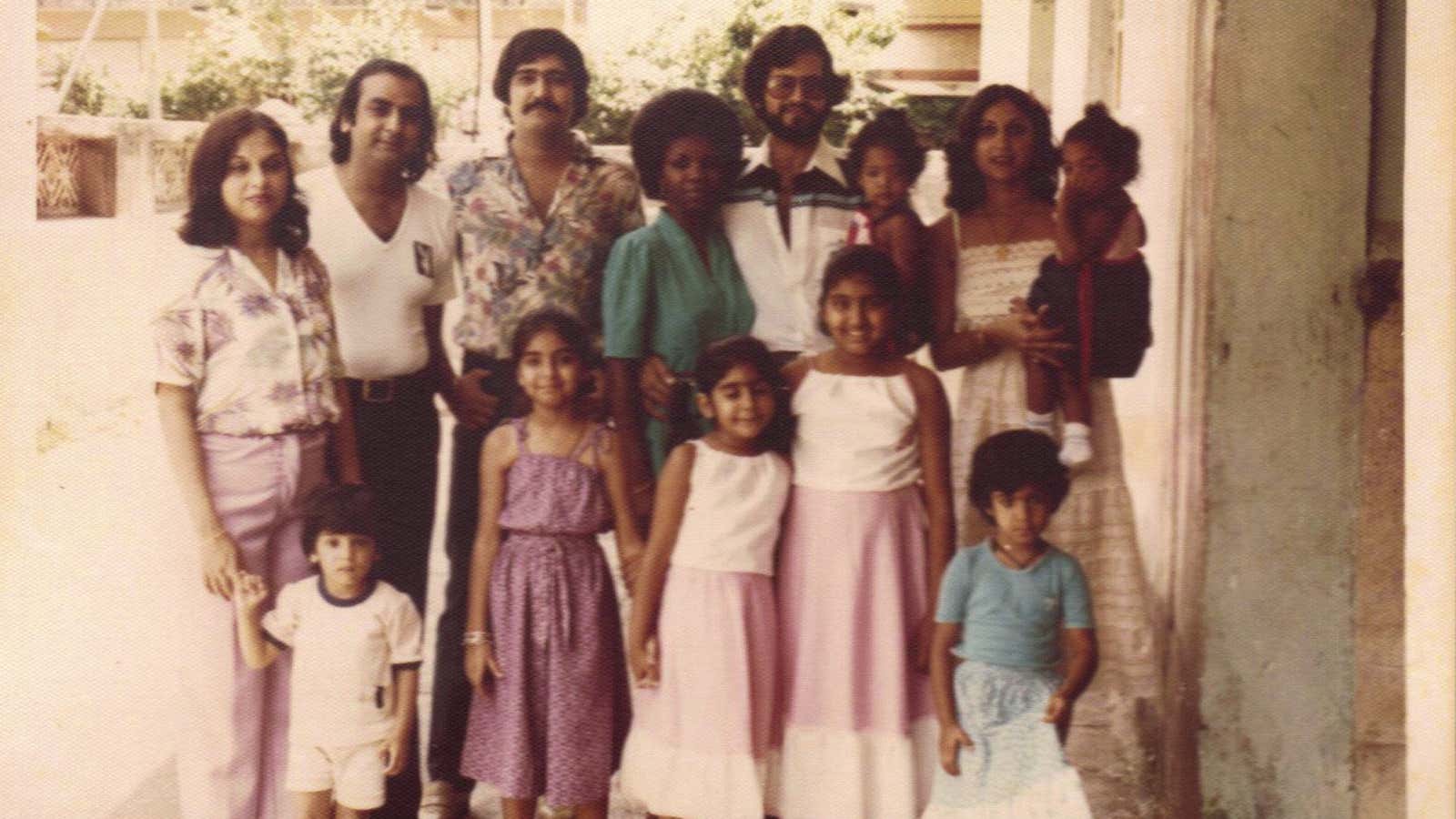My mother and father both grew up in big families. Six siblings a piece. That made for a whole lot of cousins in the landscape of my childhood. All over the world.
It was only fitting considering both my maternal and paternal grandfathers were entrepreneurs who migrated from the Sindh region of what is now Pakistan to Ghana and Morocco, respectively, in the 1930s. I myself was born in Ghana, raised for my childhood in India and then moved to the New York area when I was 12.
Before technology offered us chances to bridge distances like it does today, we were a family that connected in person every chance we got. This is thanks in large part to my parents and their siblings, who really made the effort.
Though my extended family was spread out across four continents, my youth was regularly punctuated with large get-togethers and celebratory summer reunions in Ghana, India, Casablanca, Barcelona, Paris, and London.
Our family meetups were the highlight of my childhood (see photo above). My cousins and I shared the joys and pitfalls of growing up with one another in a way that only cousins can. We organized candlelight dinners and put on musicals for our parents. We watched Michael Jackson rise to stardom by watching Thriller on replay. We put on plays based on the Ramayana for our grandmothers. We test-drove cars without permission. We consoled one another through teenage heartbreak. We traced and mapped out our complicated family trees.
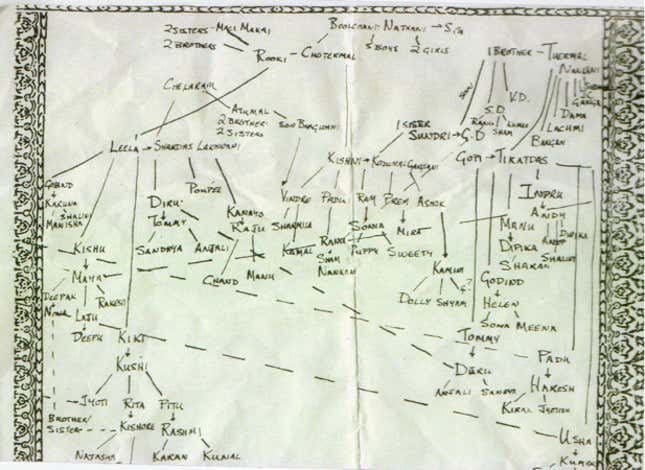
We were children raised in the 1980s. So, of course, we wrote each other letters. The old-fashioned kind with stamps, cool stationery, doodles worth saving, and secrets worth telling.
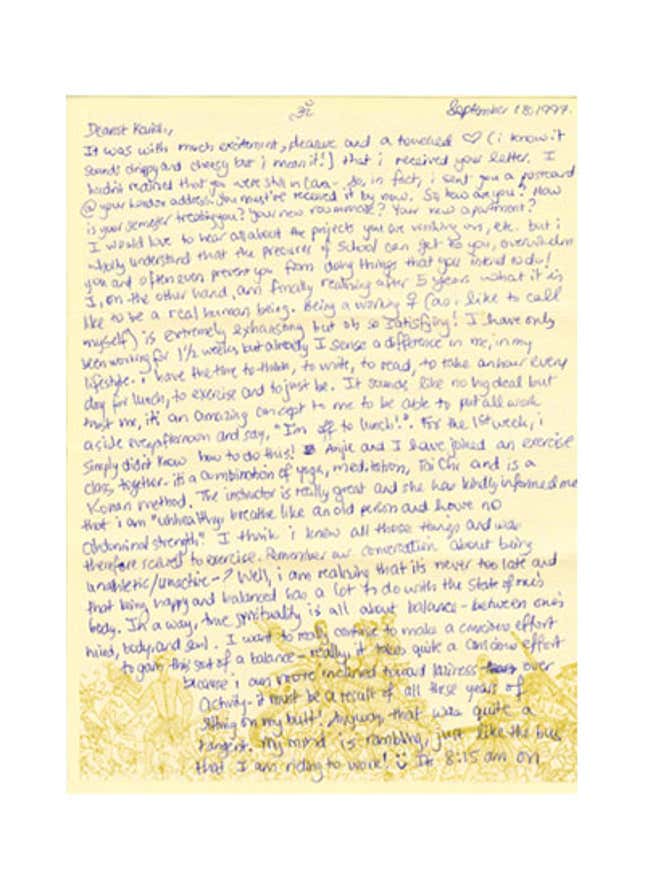
Our envelopes were stuffed with mix tapes, photographs, inspiring quotes, lists of must-read books, and cut-outs of quizzes that have surely inspired Buzzfeed—”Which celebrity are you? What city should you live in?“
My cousins were my best friends.
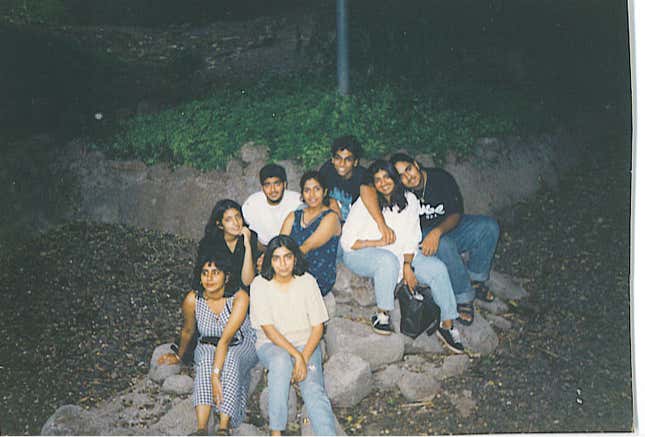
And then we became the Drifters
It happened despite our best efforts to avoid it. We all became grownups with responsibilities. We started building our careers. Settling down. Family reunions just didn’t happen as often as they used to.
Of course, there were still the big events. In an Indian family, that usually translates to weddings.
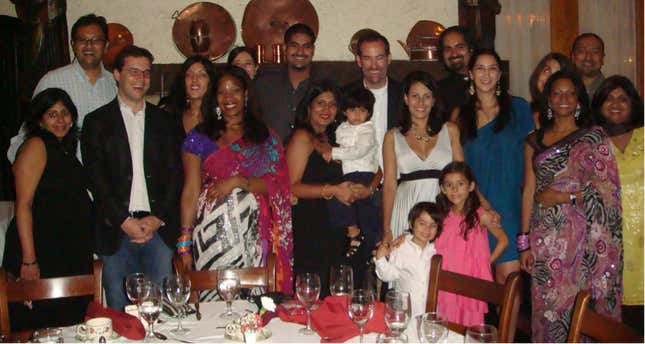
But those were large gatherings filled with intersecting circles of relatives, friends, acquaintances. A bit like Facebook. Not the cozy, intimate encounters of our childhood where we had the chance to crowd together in one room, hash out our politics and prose, and fall asleep on one another’s shoulders.
One day, I woke up with a wonderful husband and baby daughter by my side, only to realize that the connections I used to have with my cousins were endangered.
How do I love thee?
Email weeklies, a print newsletter, ICQ, a cousins blog, a Facebook group, Skype, Facetime. We had experimented with lots of ways to stay in touch over the past dozen or so years. Each caught on for a little while, then fizzled out.
Then, from March 2012 to March 2013, my cousins and I engaged in a Luddite experiment. We took turns writing in a nice, thick journal and passing it on to one another via snail-mail. It left all of us craving a deeper connection; the kind we had as children and adolescents.
I believe that it was in response to “The Cousinhood of the Traveling Journal“ experiment, as we called it, that my cousin Sanjay started our WhatsApp “Cousins” group just about a year ago.

Like many Americans, I had never heard of the nearly free mobile messaging app, which has 450 million active users globally (mostly outside the US). But my cousins in India, Europe, and Africa swore by it—and so, I joined the party.
Being global, feeling local
When I got wind of Facebook’s $19 billion acquisition of WhatsApp last week, I began take stock of the many ways that it has brought me back to my cousins; made me feel that we are at back at one of our summer reunions of my childhood.
What differentiates WhatsApp from all the other tech tools we have tried out over the years is that it offers us a meaningful means to have real-time communication no matter how spread out we all are—Paris, New York, New Jersey, Accra, Portland, Los Angeles, Washington DC, Casablanca, Barcelona, Madrid, and India. It is private and intimate. A special place just for us.
When my cousin Kiran married Claude in Barcelona last spring, we used our new group to almost livecast the wedding for those who couldn’t make it.
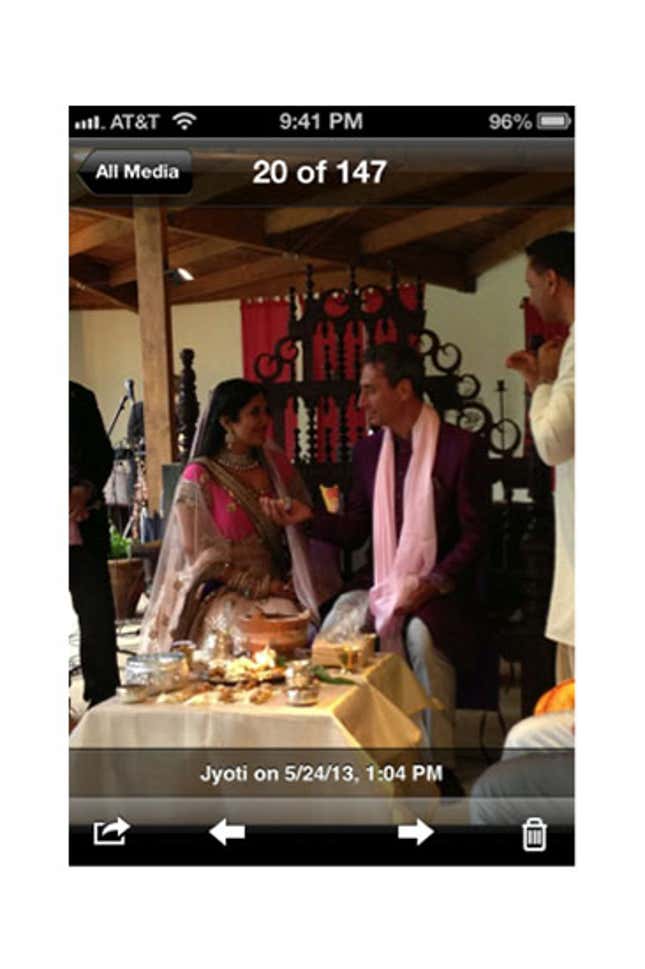
This kind of sharing allowed us to respect the intimacy and privacy of the family moment. Something that is simply not possible on a platform like Facebook. Plus, it was free.
Apart from a special event like a wedding, the group has allowed us to intersect with one another regularly; to see, hear, and read snippets of each other’s daily lives.
There are the holiday and birthday wishes, of course.
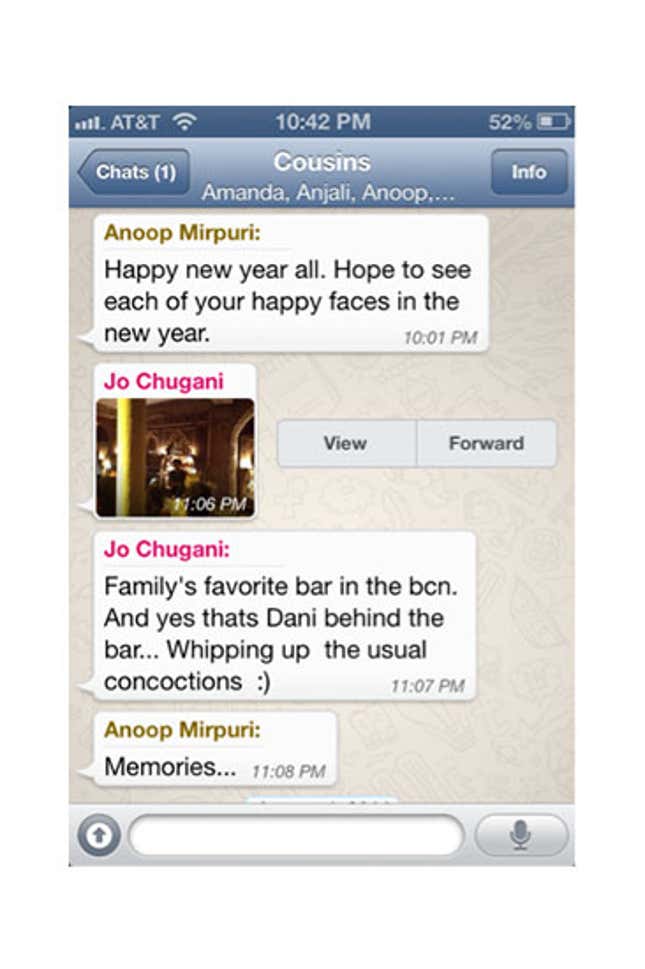
There is also the sharing of our professional accomplishments.
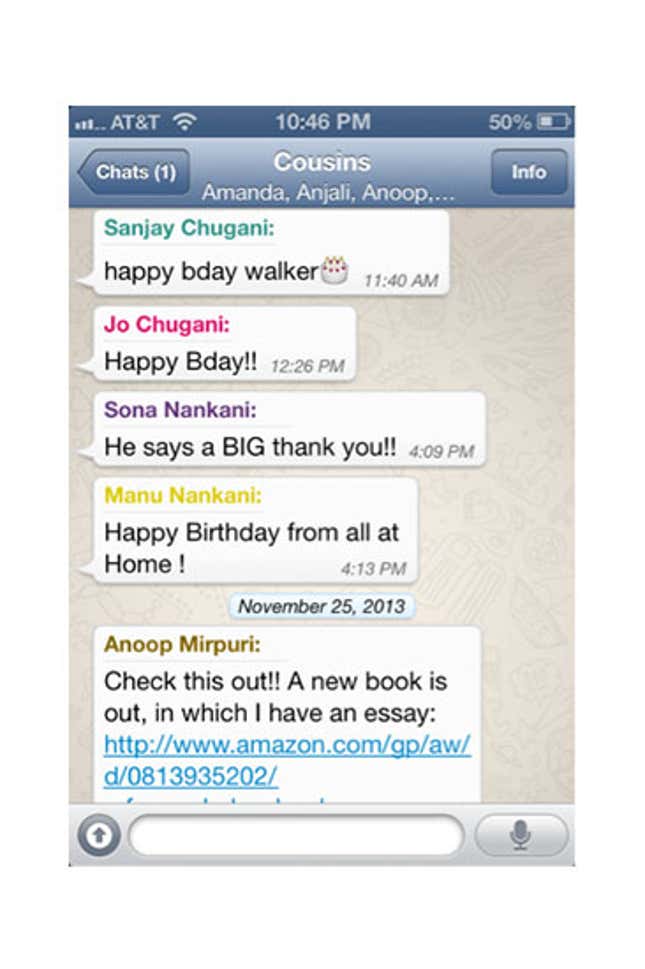
Sometimes, we harken back to our childhood love of quizzes.
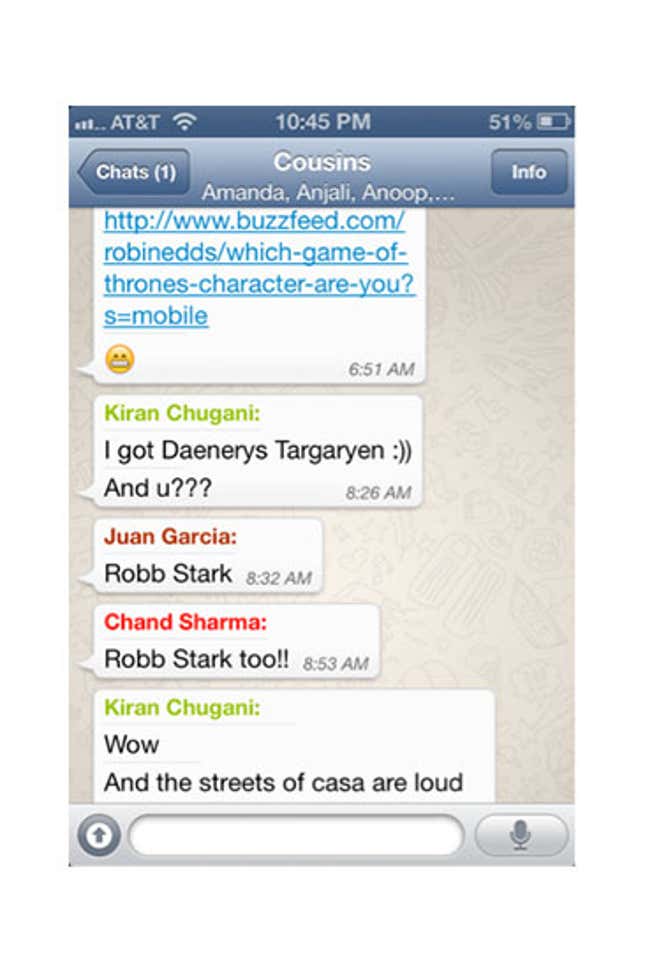
And other times, we attempt to engage in Socratic Seminars …
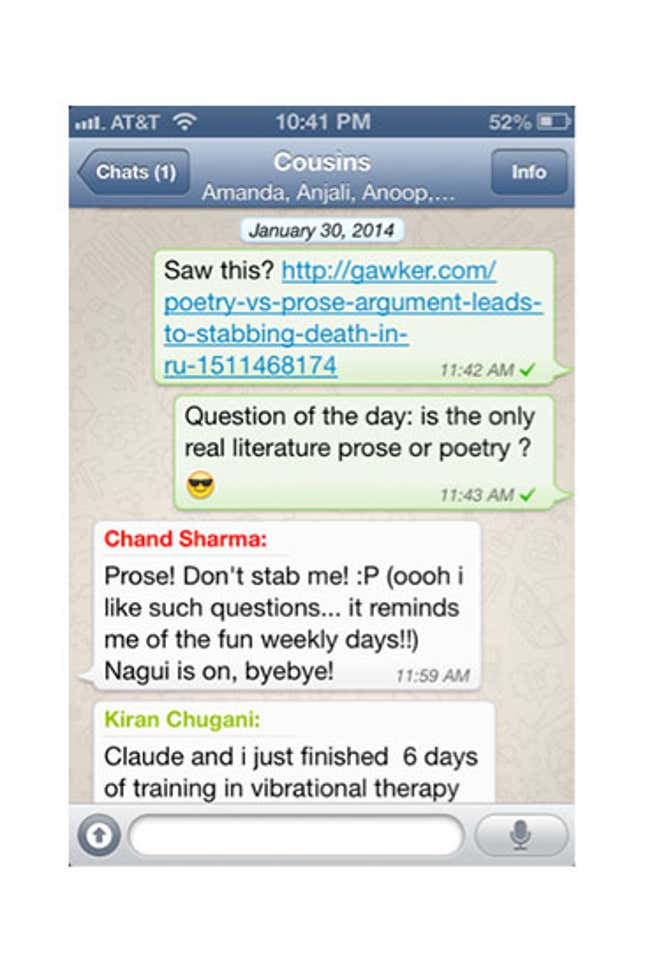
Or brainstorm our reading selections.
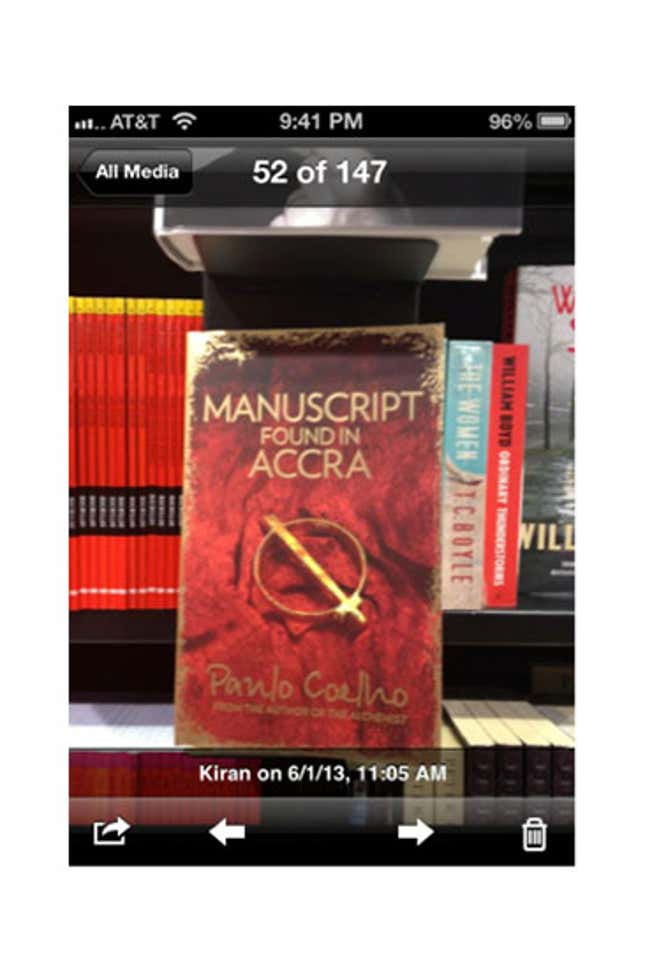
On more than one occasion, we have shared the whereabouts of our 89-year-old grandmother, who splits her time between Accra, Casablanca, and India.
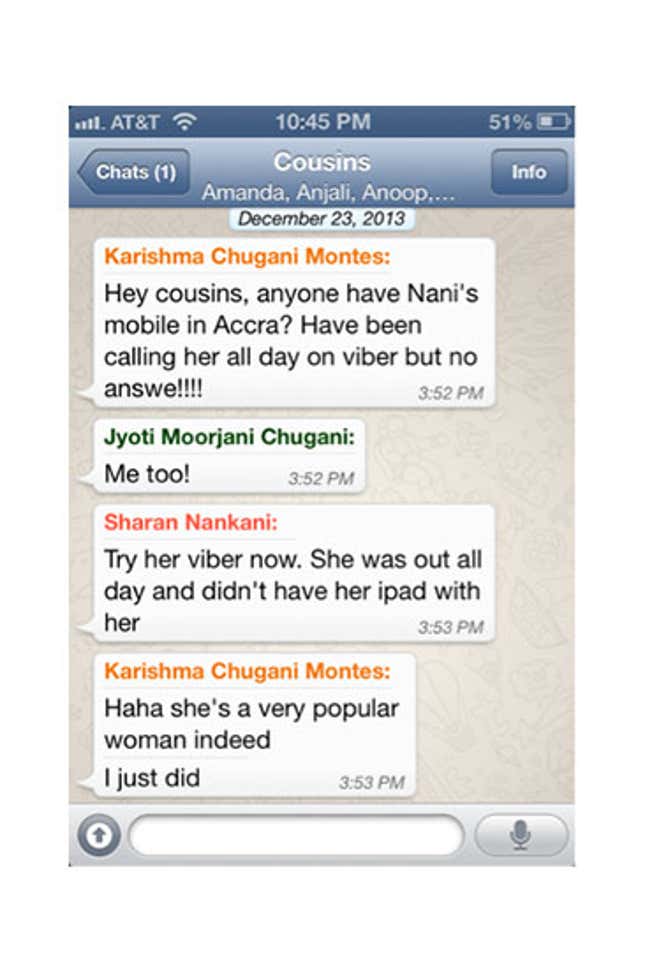
Since so many of us are in Europe and Asia, during soccer season, the airwaves buzz with excitement.
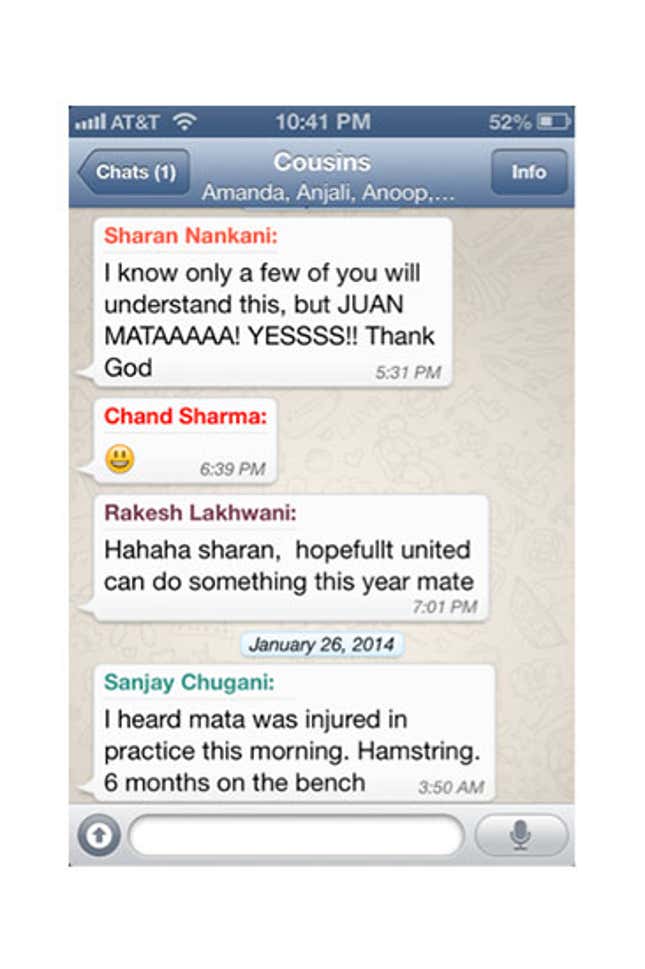
And, on summer weekends, our feed is full of food porn worthy of No Reservations.
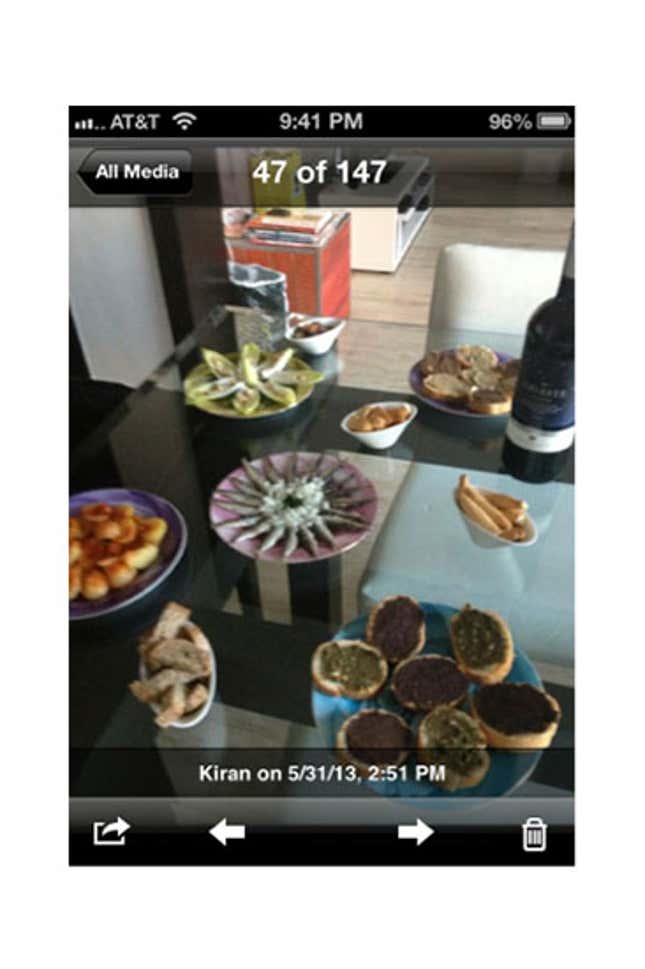

This kind of sharing has a special tone that is distinct from Facebook or Instagram. It translates more to an “I miss you in particular” or a “I wish you were here with me today” than a “Look at what you’re missing.”
When virtual connections leads to real sightings
Joining the WhatsApp party has reconnected me to my family in a way that I could never have imagined possible. One of the things that happens when you are connecting more with the people you love virtually is that you want to see more of them. Our WhatsApp cousins group has prompted regular cousins gatherings in the places where we all are.
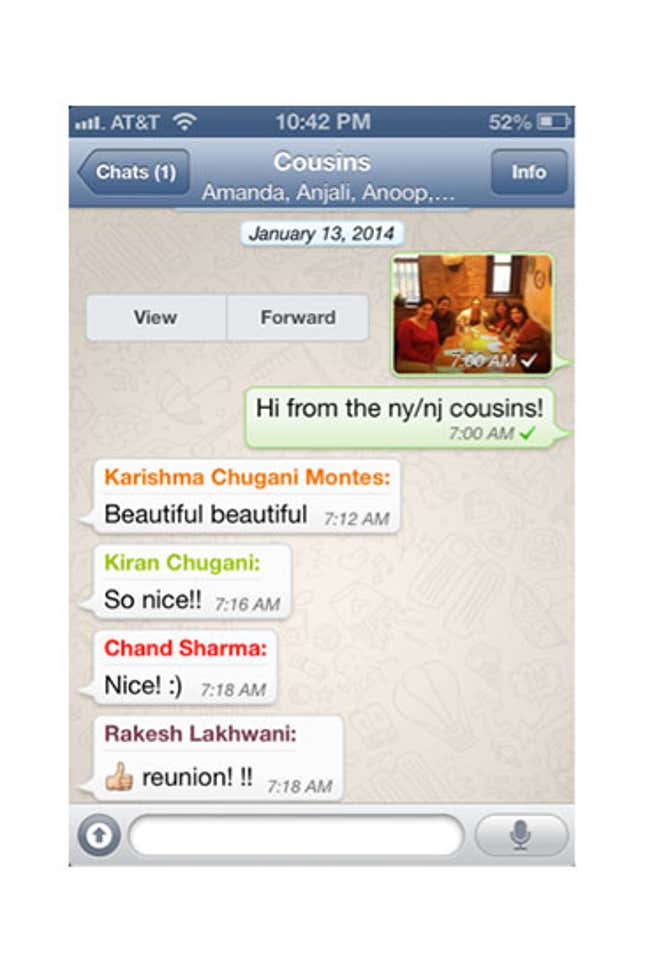
It is also inspiring the planning of cousins reunions that will happen independent of weddings or funerals, independent of our parents and grandmother, long after they are gone.
Now, that is something that is worth more than $19 billion.
